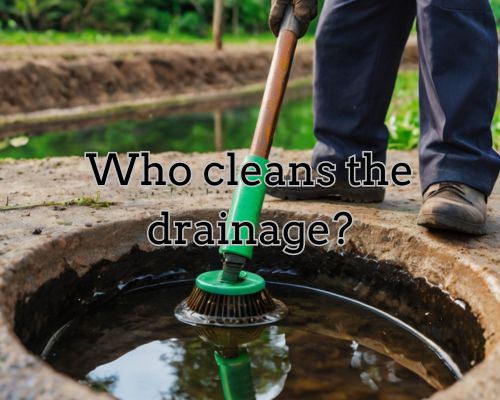Clogged drains can be a persistent problem that interrupts your daily life. You might wonder who is responsible for clearing these blockages, especially in a rental property.

In Australia, the responsibility typically falls on the tenant if they have caused the blockage through their actions. For instance, if hair or personal items clogged the drain, you would need to handle the cleanup and any associated costs.
However, if the blockage is due to structural issues or external factors, such as tree roots growing into the pipes or outdated plumbing, the responsibility usually lies with the landlord.
Understanding this distinction can save you time and money, ensuring that you know when to call a professional and when to seek assistance from your landlord.
Whether you are a tenant or a homeowner, keeping drains clear is essential to maintaining a functional living space.
Professional services, readily available throughout Australia, can assist with more severe blockages, ensuring that your drainage system remains in optimal condition. Visit website for your professional service.
Understanding Drainage Systems and Common Issues
Proper drainage systems are essential for maintaining the integrity of your home. This overview focuses on the types of clogs and their causes, as well as maintaining household plumbing and drainage systems.
Types of Drainage Clogs and Causes
Clogs are a common issue in both residential and commercial drainage systems. They can occur in various parts of your home, including kitchen sinks, shower drains, and garbage disposals.
Hair clogs typically affect bathroom drains. Loose hair accumulates over time, creating blockages that slow down water drainage.
In the kitchen, grease and oils congeal inside pipes, trapping food debris and leading to slow drains. Moreover, improper disposal of food waste, especially fibrous materials, can lead to blockages.
Toilets and laundry drains are also susceptible to clogs due to paper products and lint build-up.
Recognising these different types of clogs can help you take preventive measures to maintain a smoothly running drainage system.
Household Plumbing and Drain Maintenance
Regular maintenance is key to preventing clogged drains and ensuring efficient plumbing in your home.
Start by using drain guards to catch hair and food particles.
Avoid pouring grease and oils down the sink, as they can solidify and cause blockages.
Run hot water through drains periodically to help dissolve any build-up.
Consider scheduling periodic inspections with a professional plumber to identify and address potential issues before they become larger problems.
They can also provide valuable advice on maintaining your kitchen sink, shower drain, and other household plumbing fixtures.
Keeping your drainage system in good condition is crucial for avoiding costly repairs and ensuring long-term functionality.
Effective Solutions for Cleaning Drains
Keeping your drains clean is essential for maintaining your plumbing system and avoiding costly repairs.
Employing both DIY methods and professional drain cleaning techniques can effectively address and prevent blockages.
DIY Methods for Minor Blockages
To tackle minor blockages, start with simple home remedies.
Baking soda and vinegar create a chemical reaction that can help clear minor clogs. Pour half a cup of baking soda followed by half a cup of white vinegar down the drain.
Wait 15-20 minutes before flushing with boiling water.
Use a plunger for physical removal of blockages. Ensure a tight seal over the drain and plunge vigorously.
Another method involves a drain snake or auger. Insert it into the drain and twist to capture and remove the clog.
For preventative measures, use drain screens to catch debris. Regularly flushing drains with boiling water and dish soap can also prevent accumulation.
Professional Drain Cleaning Techniques
For persistent clogs or severe blockages, seeking professional help is often necessary.
Professional plumbers use tools like power augers and hydro-jetting.
Power augers, also known as drain snakes, are motorised devices that can break up tough clogs deep within your pipes.
Hydro-jetting involves using high-pressure water streams to clean the interior surfaces of plumbing pipes. This effectively removes all debris and build-up.
Enzyme cleaners provide a natural solution by using bacteria and enzymes to break down organic material in the drains. These are safe for pipes and the environment, making them ideal for regular maintenance.
Professional plumbers can also offer advice on maintaining your drains, ensuring long-term efficiency. Visit website now.